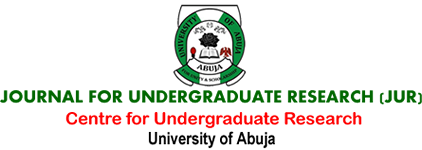Impact of Financial Intermediation on the Capital Market and
Economic Growth in Nigeria
Author(s) : Musa, Muhammad Auwal & Oloja-Ojabo, Ene Debra
ABSTRACT:
The significance of a well-developed financial intermediation in improving the economy is highly imperative to Nigeria. More so, financial intermediation through the capital market provides long-term financing designed to encourage economic growth. Given the preceding, this study examined the impact of financial intermediation on capital market and economic growth in Nigeria from 1981 to 2021. Using models incorporating descriptive statistics, unit root tests, co integration and structural Vector Auto-Regressive (SVAR) model framework. Data were first examined for stationarity (unit root test) using the Augmented Dickey-Fuller (ADF)tests to avoid spurious regression. The results showed that all the variables were stationary at their first difference. The Trace and Max-Eigen statistics showed the presence of three co-integrating equations at a 5% level of significance, implying a long-run relationship between the variables. Findings revealed the existence of contemporaneous negative transmission from financial intermediation and a positive transmission from the capital market to Nigeria's economic growth. The empirical result also showed a positive long-run relationship between credit to private sector, interest rate and economic growth; a positive short-run relationship between broad money supply and economic growth revealed a negative short-run and long-run impact; the relationship between broad money supply and economic growth. Thus, there is a need to expand access to credit and financial services and encourage long-term savings mobilisation and long-term capital for investment.
KEYWORD(S):
Financial Intermediation, Economic Growth, Capital Market, SVAR

